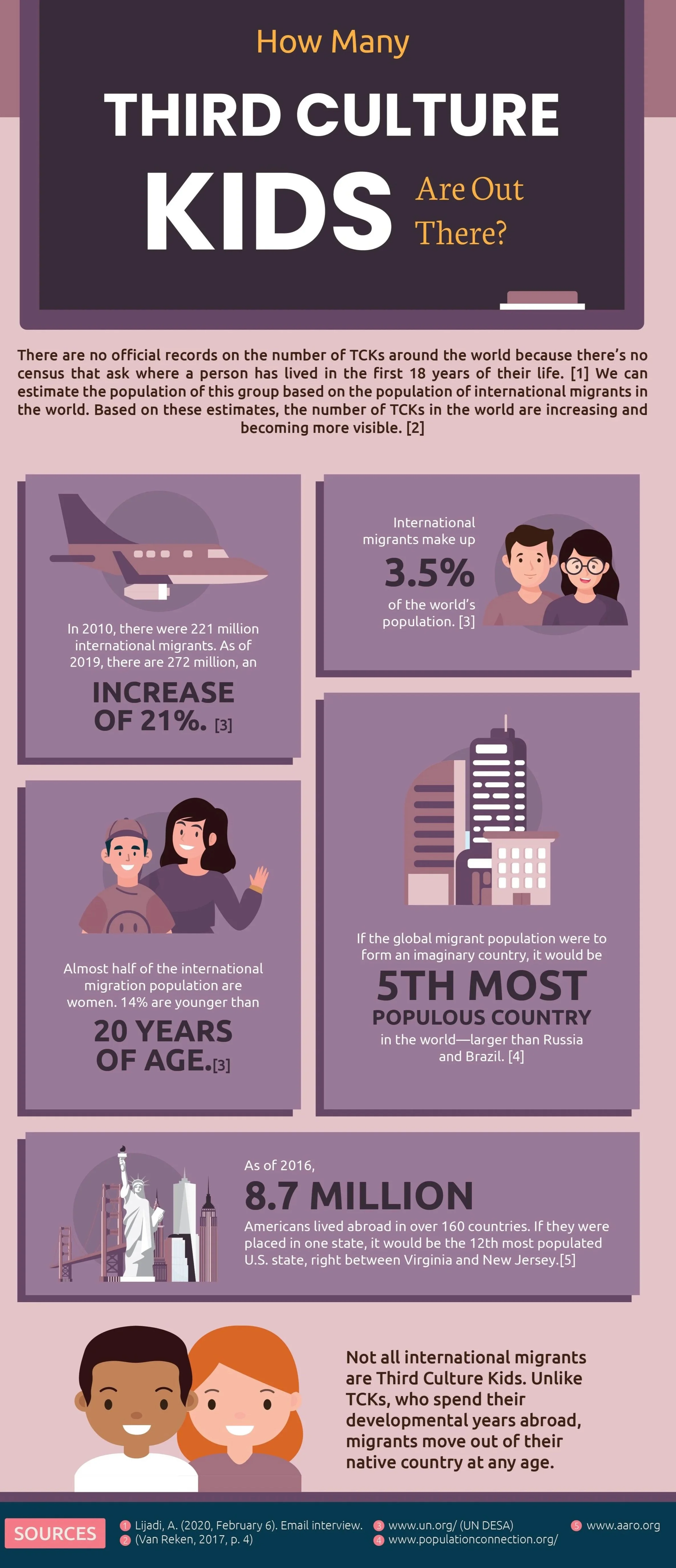
Holding multiple worlds in one heart can be both a gift
and a weight of loss, nostalgia or invisibility.
Third Culture Kids/ Adults
The term Third Culture Kid (TCK) was first used in the 1950s by sociologist Ruth Hill Useem. She noticed something unique about children who grew up in cultures different from their parents’: they developed a “third” culture that wasn’t entirely from home, and wasn’t entirely from the country where they lived. It was something in between—yet all their own.
Today, the idea has grown to include anyone who spent key years of childhood or adolescence moving between cultures—whether because of work, education, migration, or safety. These individuals often carry stories shaped by experiences and challenges that may not be easily understood within a single cultural lens. I know this path well because I am a Third Culture Kid. We are navigating:
Layered Identity shaped by movement, adaptation, and multiple cultural influences.
Cultural Disorientation from navigating conflicting values or not fully belonging to any one place.
Relational Disruption due to frequent transitions, geographic distance, or cultural mismatch.
Emotional Disconnection from the unspoken weight of loss, nostalgia, or invisibility.
Adaptive Strengths such as code-switching, bridging worlds, and reading between lines—often developed for survival but at a cost.
Internal Conflicts between inherited expectations and emerging personal values.
Intergenerational Tension around loyalty, autonomy, and belonging.
“ . . All immigrants are artists because they create a life, a future, from nothing but a dream. The immigrant’s life is art in its purest form.”
In TCK therapy, together, we will:
Untangle identity-related tensions and questions around cultural belonging
Discern which inherited values feel authentic to you—and which no longer serve you
Make room for all of your story: your roots, your transitions, and your evolving self
Cultivate ease in relationships shaped by difference, loyalty, and love
Reconnect with your emotional landscape, especially if it has felt fragmented by migration or silence
Navigate intergenerational expectations with clarity and self-respect


